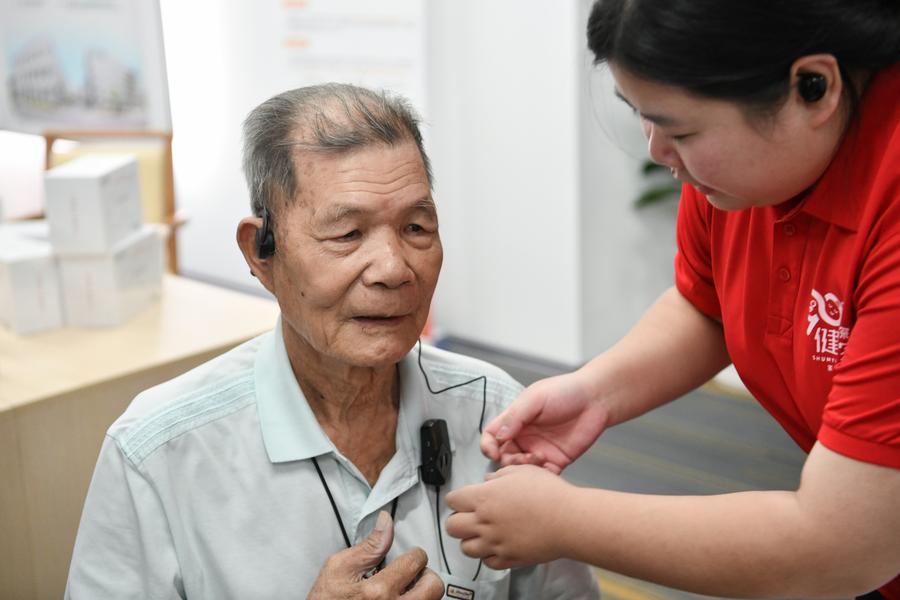AI devices reconnect elderly with the world of sound


TAIYUAN — In a hearing aid store in Taiyuan city in North China's Shanxi province, 70-year-old Zhang Wei heard his granddaughter's voice clearly for the first time in years. Thanks to an artificial intelligence-powered hearing aid, the elderly man with age-related hearing loss has reentered a world of sound.
"It's like someone suddenly turned up the volume knob," Zhang exclaimed while adjusting the device in his ear.
Zhang is among a growing number of elderly Chinese benefiting from a new generation of AI-enabled hearing aids. Beyond amplifying sound, these devices use advanced algorithms to distinguish speech from background noise and offer personalized sound enhancement.
China has about 27.8 million people with hearing disabilities, and the number is rising as the population ages. The hearing health of this community draws public attention. "Over 70 percent of our customers are aged 60 and above," said Cao Lijun, a hearing aid specialist in Taiyuan.
With China's elderly population expected to exceed 400 million by around 2035, experts predict an enormous potential market for hearing aids.
Technology companies are intensifying their efforts to innovate. According to Cui Rongtao, general manager of Xunfei Healthcare's intelligent hardware division, AI models are trained on vast amounts of real-world sound data. This training enables devices to amplify speech while minimizing background noise in real time, reducing feedback whistling, and providing a more natural sound quality.
"Unlike traditional hearing aids that primarily focus on basic hearing needs, smart AI devices now incorporate entertainment and communication features, such as listening to music, making phone calls and soon, even supporting voice-activated virtual assistants," Cui said.
Government support is also playing a crucial role. China's basic medical insurance covers a portion of the cost for certain models, helping to reduce the financial burden on elderly users.
A national guideline on hearing health issued by the National Health Commission calls for strengthening hearing care for key groups, expanding family doctor services for seniors, promoting hearing screenings, and advancing AI applications in the field. Despite progress, challenges remain. Many people with hearing loss still do not use hearing aids due to limited awareness, service accessibility, or social stigma.
To address this, companies and organizations are developing easier-to-use devices and expanding community-based hearing services.
For example, Tencent and the China Association of Persons with Hearing Disabilities are collaborating on the "Tianlai Initiative", which offers free AI-based audio technology, screenings and hearing aids in several cities.
Tencent has launched a remote hearing service platform that leverages the audio and video communication infrastructure of Tencent Meeting, along with the data management and analysis capabilities of Tencent Cloud. By partnering with professional hearing aid manufacturers and fitters, the initiative aims to enhance user convenience and streamline the fitting process.
With technological innovation and policy support, AI-powered hearing aids are helping reconnect China's elderly with the world of sound. Industry insiders predict that as costs decline, hearing aids will become more like consumer electronics — widely available and easily self-fitted — much like eyeglasses are today.
"Modern hearing aids are stylish, comfortable and user-friendly, reducing stigma and encouraging early use," Cui said.
Xinhua





































